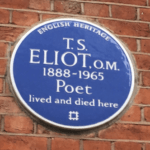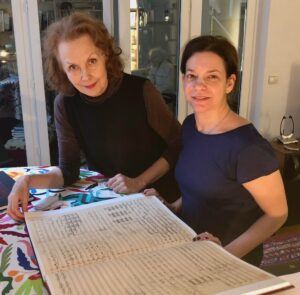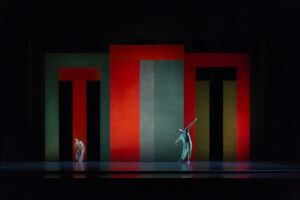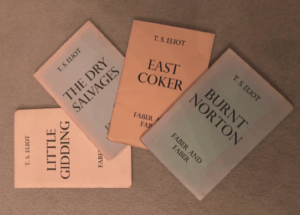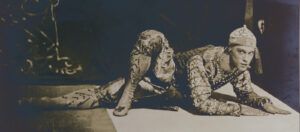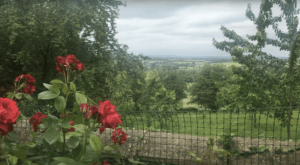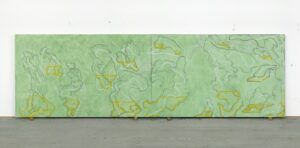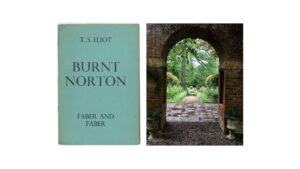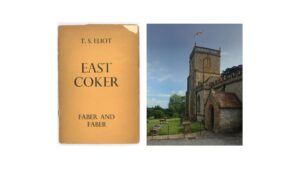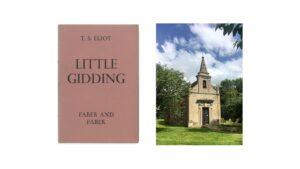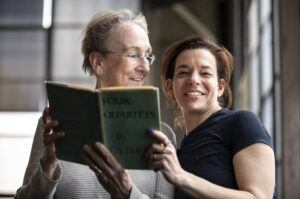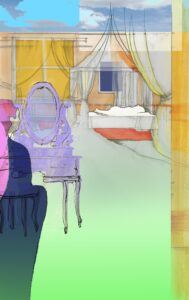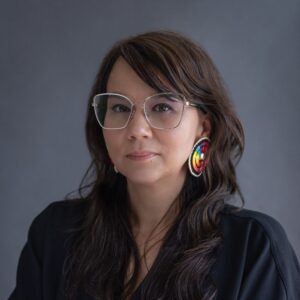Before Pam Tanowitz could begin developing a performance based on Four Quartets, we needed to obtain permission from T. S. Eliot’s estate. In 2016 I approached Clare Reihill, who runs the estate, and pitched the idea to her.
Clare invited me to meet her at the estate’s offices, which are housed at the London flat where Eliot lived with his wife Valerie from 1957 until his death in 1965. Clare, a publisher, was Valerie’s assistant in the final years of her life and oversees the management of the Eliots’ legacy.
The flat is in a handsome red brick building near Kensington High Street, which now carries a blue plaque commemorating its famous resident:

Photos by Gideon Lester
Clare welcomed me and gave me a tour. The rooms are small and unexceptional, but I found it intensely moving to be there, for the first time sensing the Eliots as real people living their lives in ordinary rooms. Eliot was for many years a publisher at Faber & Faber, and part of his library remains in the flat, including a copy of Ulysses that James Joyce gave him.
Eliot’s collection of tobacco pipes is still on a mantelpiece in the library:
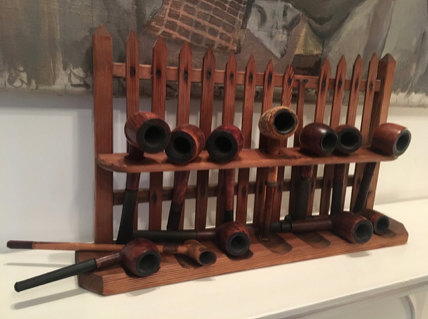
— and his suitcases, one of them monogrammed with his initials, are still on top of the wardrobe in the bedroom. These are the cases that Eliot carried on his frequent voyages across the Atlantic:

Clare made tea, and we sat at the kitchen table as I outlined our idea for Four Quartets. I was in T. S. Eliot’s kitchen! Even if nothing came of the project, I would remember this moment forever. I was deeply conscious of a line from Eliot’s poem “Portrait of a Lady” – “I shall sit here, serving tea to friends ….”
Much to my relief, Clare responded positively. The estate granted us a license and has supported the development of the performance in countless ways, for which my colleagues and I owe Clare enormous thanks.
The idea of home is central to Four Quartets. In “East Coker,” the second poem, Eliot meditates on home as a place of origin and departure, a bridge between the living and the dead:
Home is where one starts from. As we grow older
The world becomes stranger, the pattern more complicated
Of dead and living. Not the intense moment
Isolated, with no before and after,
But a lifetime burning in every moment
And not the lifetime of one man only
But of old stones that cannot be deciphered.
Sitting in that flat in Kensington, where Eliot is and is not, where his life ended and the journey of our performance began, I understood these lines as if for the first time.
As Pam Tanowitz and I continued our research on Four Quartets, Clare made it possible for us to visit several other places of significance for Eliot, including his childhood summer home in Gloucester, MA, and the church in East Coker where he and Valerie are buried. Those were also extraordinary experiences which shaped our understanding of the poems. I’ll write about them in the coming weeks.
